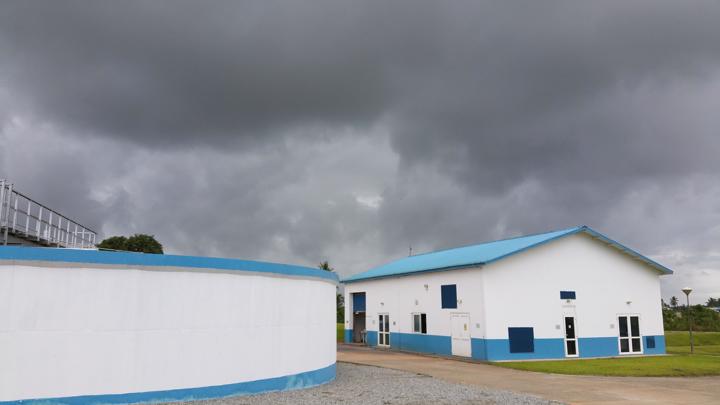Climate smart utilities - tools for building resilience

Urban stakeholders have a critical role to play in preserving the integrity of fresh water resources on which they depend on. A disruption in supply of freshwater resources to cities can have significant economic, environmental and health consequences, therefore, improving water security and protecting water resources which cities rely on is a priority.
This training provides an opportunity for water utilities to explore tools that can integrate climate information into their planning processes. Climate change is impacting availability and quality of water worldwide, and utilities need to plan, prepare and adapt to climate risks. The Flood and Drought Portal (http://www.flooddroughtmonitor.com/) provides a package of applications to assist utilities with information and assessment of climate hazards and risks, and support water safety planning approaches.
“This Training occurs during the IWA World Water Congress and open to all delegates attending the IWA World Water Congress. To see who else is going to the IWA Congress click here
Target Audience
- Water utility staff (technical/operational) dealing with water and climate risks.
- Water utility staff involved in water safety planning; water professionals advising water utilities.
Learning Objectives
After the training you will be able to:
- Explain the concept of climate resilient water safety planning
- Interpret and use climate date to identify hazards and risks to be included in water safety planning
- Apply a methodology which supports the identification, assessment of climate risks impacting your water utility analysis of climate issues, and how to monitor and respond to the risks.
Agenda for training
13:15-13:30 – Registration
13:30-13:45 – Welcome and introductions
- Introductions by participants and understanding their learning objectives
13:45-14:15 – Introduction to the Flood and Drought Portal
- Highlighting main components/features of the portal
14:15-15:00 – Using the Data and Information application
- Selected datasets (short-term and long-term analysis)
- Short-term analysis and drawing conclusions
15:00-15:45 – Break
15:45-16:45 – Incorporating short-term analysis results into your water safety planning
- Considering all WSP modules, with particular focus on adjusted risk matrix and risk assessment
15:45-16:45 – Incorporating long-term analysis results into your water safety planning
- Incorporating long-term analysis results into your water safety planning
17:00-17:15 – Discussion/Q&A
17:15 – Closure
For more: https://iwa-connect.org/#/agendaItem/5ad45d83cb947a3a30c5f7df
